Preston Street Songs Exhibition
Victorian street songs printed in Preston from the 1840s are returning to the streets of Preston through a display at Preston Market Hall.
Preston Street Songs Exhibition
A historic collection of Preston’s Victorian street songs are set to be displayed and performed at Preston Market Hall.
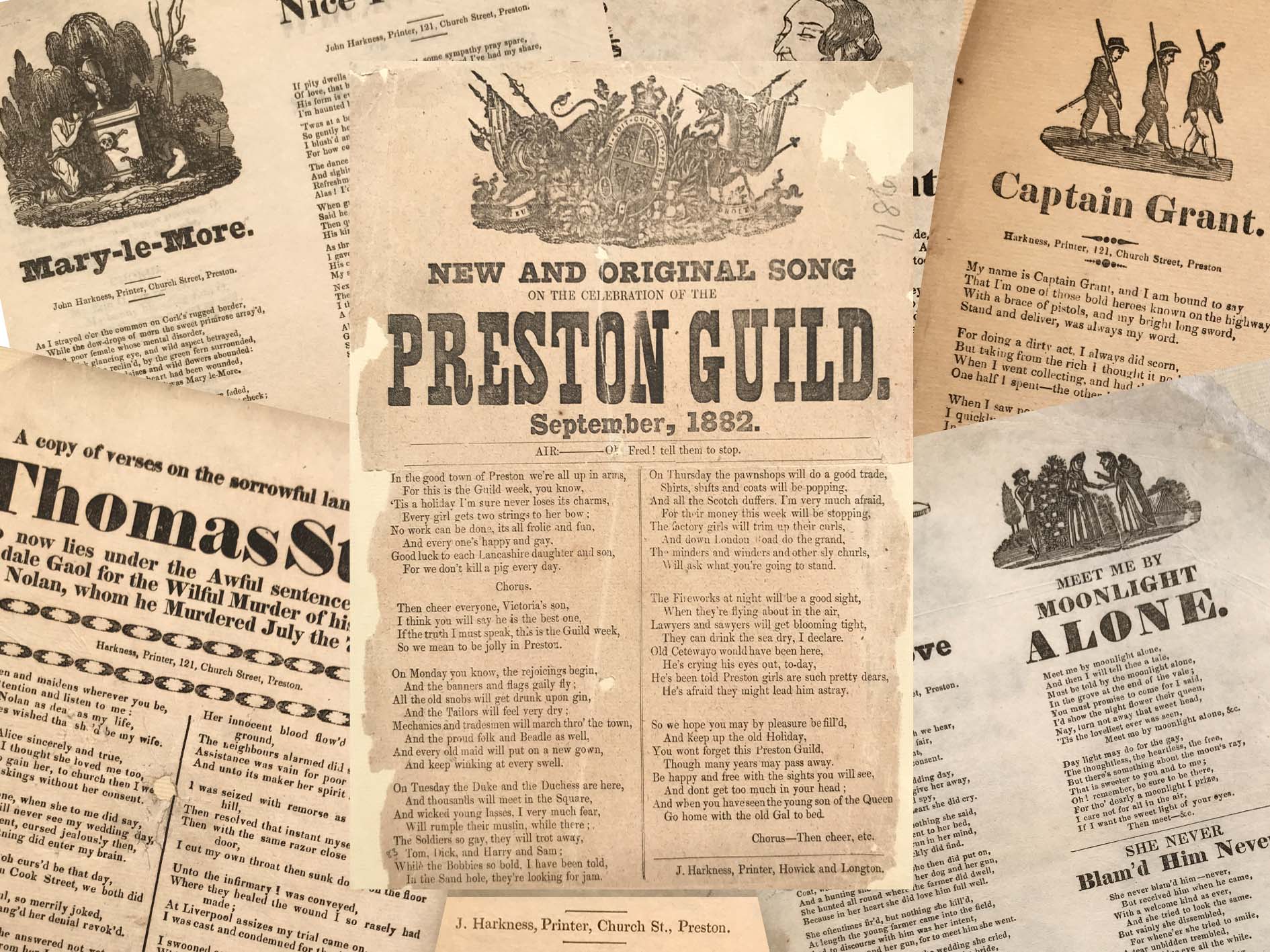
The Harris has joined forces with Preston Markets and students from The University of Central Lancashire (UCLan) to curate this ‘Harris in the City’ exhibition which showcases a sample of ballads originally printed and published in the 1800s by Preston printer, John Harkness, and will include a live singing performance.
John Harkness was one of Britain’s most popular and prolific printers of the 19th century. During this period, Preston was one of the country’s main centres for writing, printing and publishing broadsides, songs, and ballads.
Harkness was born in Carlisle in 1814, but by 1838 had moved to Newton Street, Preston, and worked as a tailor. Soon after he began printing, and published his first ballad from 8 Water Street, now Manchester Road, in 1841. He later established his main offices at 121/2 Church Street, but also had premises at 33 Church Street, North Road, and 93 Park Road, as well as at 18 Paradise Street, Liverpool and possibly in Blackburn. His main period of popularity was from the 1840s to 1870s, where his printing was sent across the country by train. Singers in London would collect his songs from Euston station.
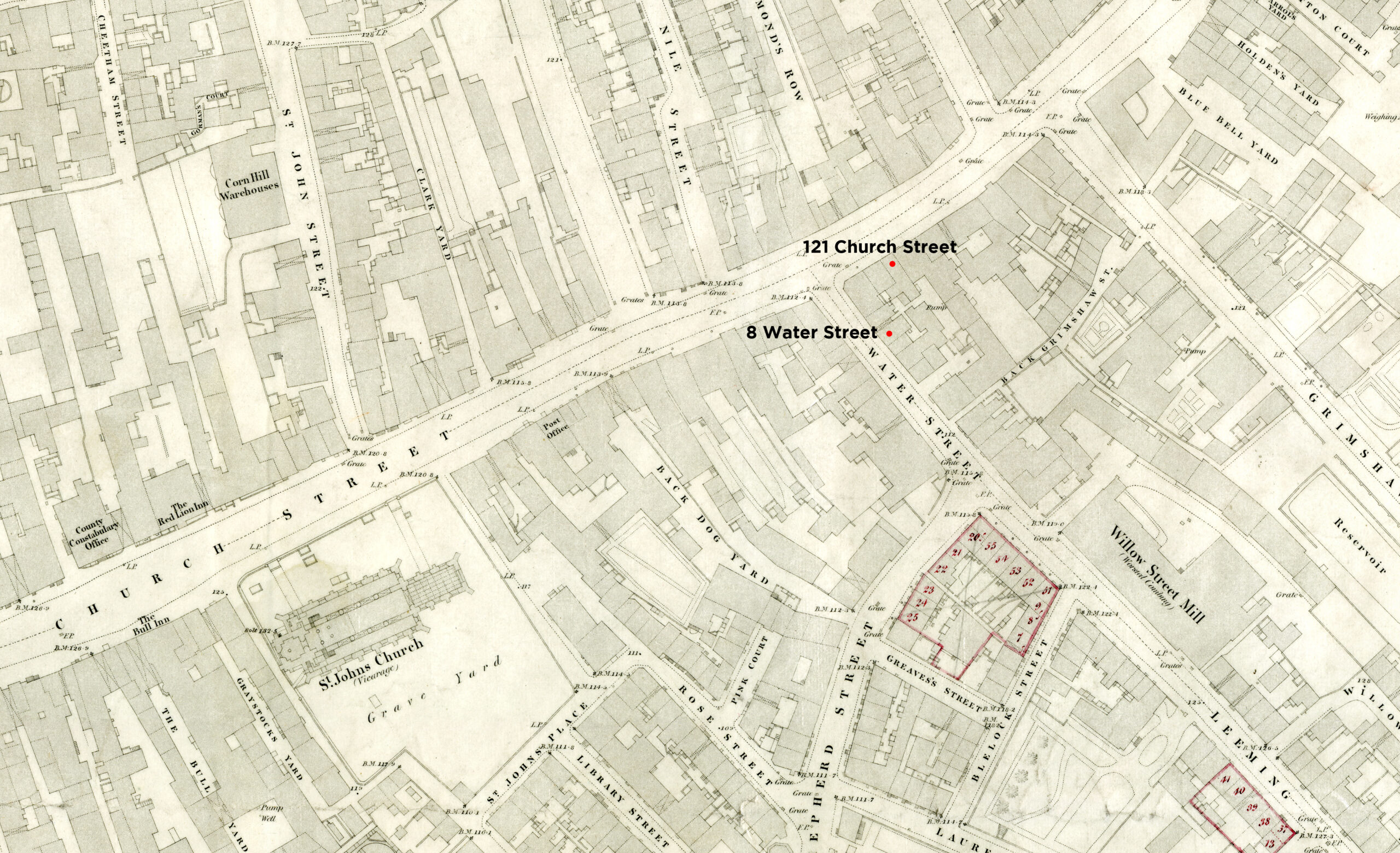
Harkness was also a lithographer, produced chapbooks, printed a newspaper, the Preston Illustrated Times, was a book seller and editor and sold stationery. He also held the tender to print the Preston’s Burgess list. He is suspected to have produced broadsides for striking workers during the Preston lockout 1853/4 but remained anonymous for fear of reprisals.
Harkness later moved to Longton, and continued printing and working as a stationer in old age at Howick. He died 14th January 1898 of bronchial pneumonia, aged 83. He had eight children, six of who survived, and at least two of which were married at the chapel on Grimshaw Street. His eldest son Thomas became a stationer and bookseller at 89 Fishergate, and married Alice the daughter of artist Charles Dickinson Langley. His daughter Rozena married local building merchant Enoch Foreshaw, of Foreshaw Brothers.
After he died, most of machinery and stock was sold cheaply in Blackburn and most of his old songs used as wastepaper. The Harkness Ballad Collection was compiled by John Henry Spencer, Preston’s ‘greatest book collector’ around 1920. In 2023, the collection was digitised and made accessible to the public through a project between the Harris Museum, Lancashire Archives, and UCLan.


This exhibition was produced by undergraduate history students Jennifer Palmer, Ayaz Hussain, Gabeen Lee, Jei Kim and Soyeon Kim.
The Harkness ballads will be available to view from 2 May 2023 at the Earl Street entrance to Preston Market Hall from 8am to 5pm Monday to Saturday, until mid-July. There will be a live performance of a selection of ballads by singer Jennifer Reid, within the Market Hall from 2pm on Saturday 10 June.
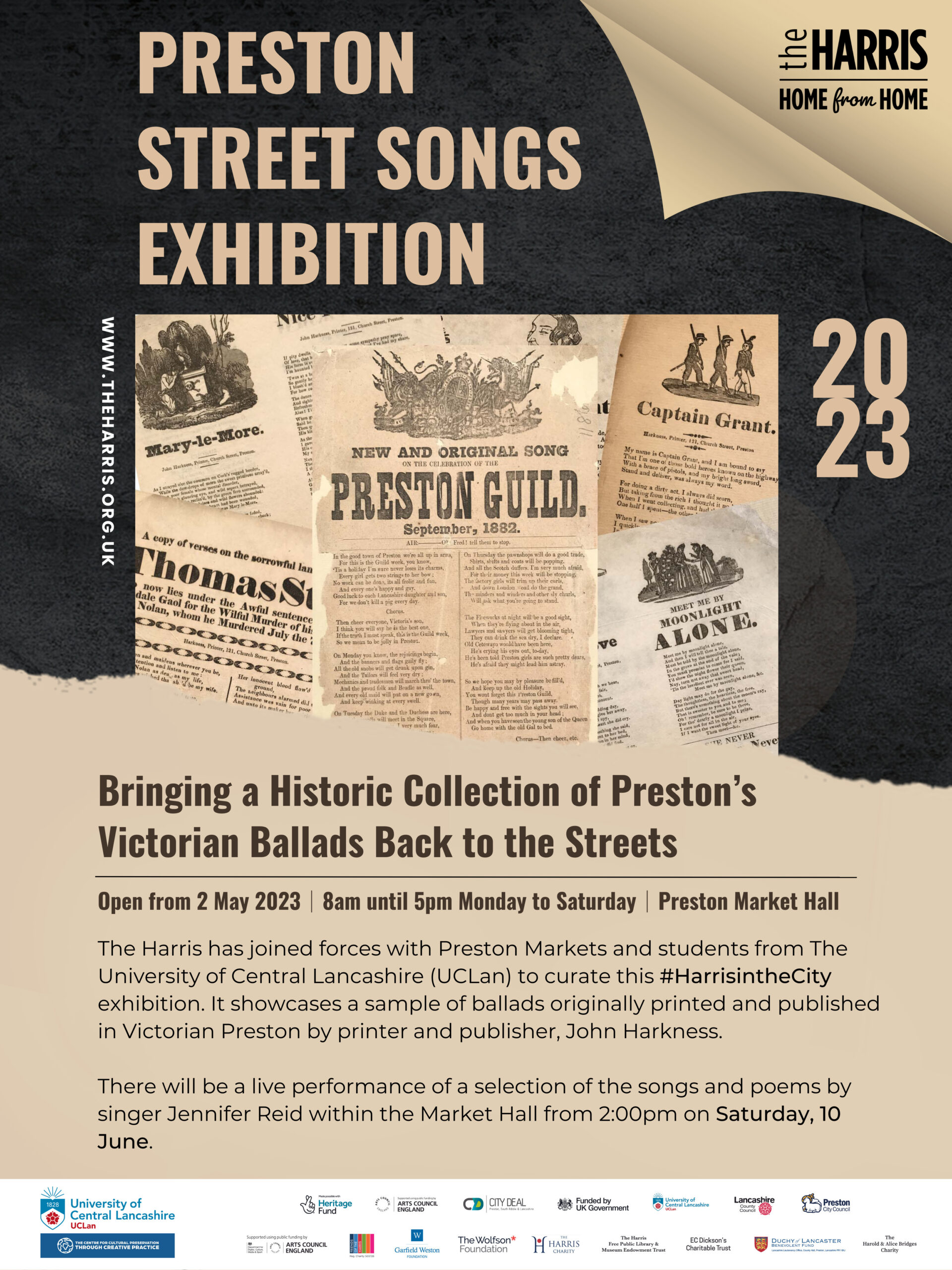
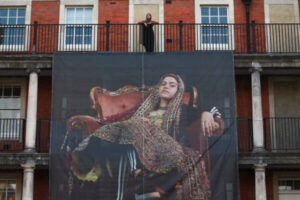
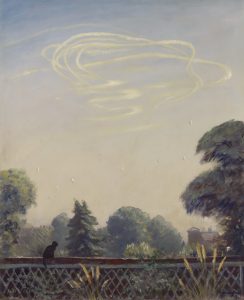
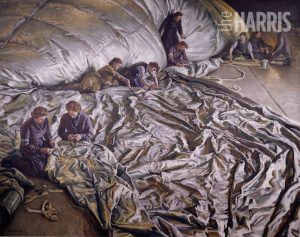

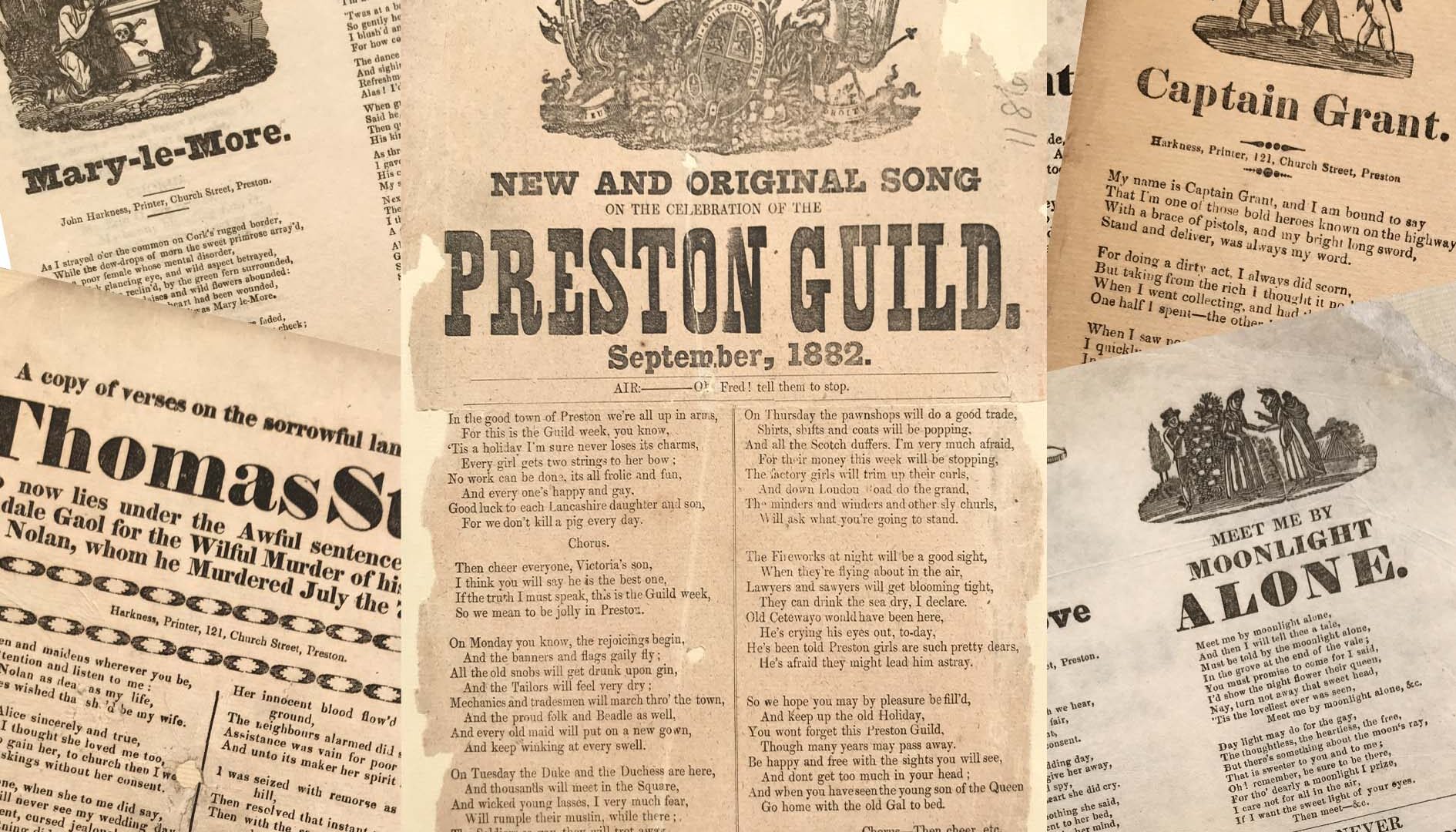














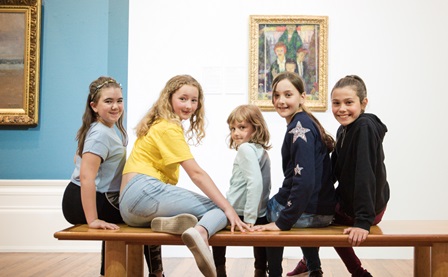

Leave a Reply